The Urban Teacher Education Program recognizes that to realize its mission, the program must be truly responsive not only to the special needs of individuals who have chosen to become professional teachers but also to the settings in which they prefer to teach. This concerns is reflected in the seven principles guiding the program.
Training Partnerships
A combined faculty consisting of university professors, teachers, and administrators have formed a collaborative, field-based teacher training program. Together, the classroom teacher, university professor, and student can analyze the effectiveness of instruction and make joint decisions about what is required of teachers in urban schools and how such goals can be met.
Field-Based Learning and Instruction
Training for urban teachers should be conducted in the urban schools and classrooms themselves. When teachers are asked to identify the part of their professional training they found most helpful they consistently cite the experiences they had in the field.In the Urban Teacher Education Program, the schools used for professional training and field experiences have been designated Professional Development Schools, or PDSs. Each PDS focuses on preparing teachers for a particular level: elementary, middle, or high school. The training sites are managed in partnership with teachers, parents, school administrators, and university faculty.
Experience-Based Curriculum
The curriculum of traditional teacher training programs is for the most part knowledge-based. In keeping with its commitment to field-based teacher training, the UTEP curriculum is based in concrete contexts where participants master appropriate and effective teaching skills and strategies in close contact with actual students and teachers in classrooms.School and community leadership experiences also are an important facet of the training. Functioning as apprentices, students have the opportunity to acquire the knowledge and skills of their profession in interaction with children, parents and professionals.
Flexible Placement
The Urban Teacher Education Program is committed to serving the professional needs of those dedicated to excellence in teaching and to making a significant difference in the academic and personal lives of school children in cities. To clarify and develop this commitment, accommodation is made to both the educational and life experience of individuals. Trainees taking part in the program include those who have just completed pre-professional undergraduate requirements toward an education degree and also graduates with degrees in non-education fields. Undergraduates are placed in PDS and graduates are paired with mentors in urban PDS.
Individually-Guided Professional Development
The demands of teaching require that a student be given careful guidance. Students need ample opportunity to experience what teaching is really like so they can make an informed choice to teach as a career. They should also have the opportunity to re-train or accelerate, depending on their needs and capacities. The Urban Teacher Education Program is rooted in the concept of individualized training for urban teachers. Becoming a teacher is a developmental process that needs to take into account the unique experiences and attributes of those who want to teach.
Phases of Developmentally-Sequenced Training
The traditional training sequence in teacher education consists first of courses which typically focus on foundations and methods, a semester (usually no longer than twelve weeks) of student teaching, and finally, the lonesome “sink or swim” period after teacher training has been completed. UTEP believes that a student’s progression through a program should be determined in relation to phases of professional development. One phase would emphasizes awareness of the urban school setting as well as the roles and responsibilities of teachers in such settings. Another would focus on the acquisition, practice, and reflection of teaching strategies through a mentoring/coaching relationship with teaching staff. And, still another phase would stress practice in the classroom setting, concentrating on selecting, applying, and reflecting upon strategies acquired in prior phases.
Reflecting for Effective Classroom Performance
Teaching is a reflective act which demands on-going judgment about what would be appropriate or inappropriate to do in a particular teaching context. The Urban Teacher Education Program believes that the reflective skills and abilities teachers use in the classroom to make these quick decisions can be transmitted to those who want to teach. This is done by creating a setting in that students and staff have an opportunity to engage in a collaborative process of reflection and decision-making. Through the cognitive coaching method the Urban Teacher Education Program seeks to provide these opportunities.


